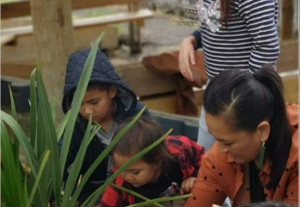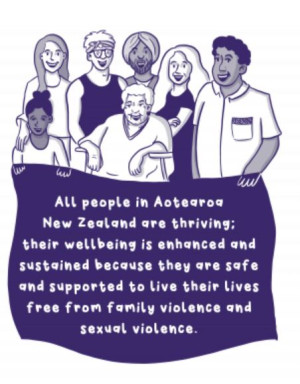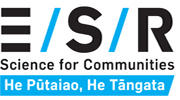Innovation in forensic medical examination response to sexual assault
The forensic medical examination response to sexual assault is a complex system that involves a patient, medical practitioners, forensic laboratory scientists, police and legal personnel. This project seeks to review the system and look for ways that innovation in technical, social or scientific processes can provide beneficial improvements.
An initial step was to conduct a literature review of forensic medical examination studies(external link)(external link), from the perspective how these are experienced by patients and medical practitioners, to inform the innovation co-design process. The review emphasised that the forensic medical exam had a primary purpose of patient health care and a secondary purpose of providing evidence for criminal investigation and prosecution. The exam was also experienced as invasive and unpleasant, so innovations that could simplify or minimise the examination while retaining effectiveness for the health and legal purposes would be an improvement.
Co-Search: Equity in COVID-19 response
Co-Search is a research collaboration that aims to guide an effective and equitable pandemic response in Aotearoa New Zealand, and to learn how resilience and future responses can be improved. The ESR Social Systems Team, led by Mat Walton, is conducting the systems research component with the aim of developing a systemic understanding of community response and impact, to guide COVID-19 response adaptations. More information is available on the Co-Search website (external link)(external link).
Beyond Behaviour Change for waste minimisation
Complex problems demand new ways of problem-solving. We approached the complex problem of an ever-increasing waste mountain by conducting a realist review of waste interventions in Aotearoa New Zealand, looking for what worked, in which contexts, and for whom. This led to a programme theory with four interlinked propositions, explaining the mechanisms for a system change from managing waste to minimising it.
Following on from the realist review, we developed a causal loop diagram (a systems thinking tool) which shows how the waste system is complex and embedded within our socio-economic system. We identified some leverage points - places where actions might produce large changes in the operation of the waste system.
The combination of realistic review and causal loop diagramming reinforced that holistic waste minimisation strategies in Aotearoa should be embedded in indigenous worldviews, use whole system approaches, and include both practical and emergent strategies. Courageous systems leadership is required to navigate a sustainable shift towards waste minimisation.
Read the report: Towards waste minimisation in Aotearoa New Zealand: A realist review and systemic analysis of waste interventions
(external link)
Public health personnel work collaboratively with a range of organisations to support health through prevention. However, working with organisations that do not have health as their core business presents challenges for achieving health impact.
In three case studies we explored how public health personal have influenced decisions of non-health organisations through expert advice, to identify a number of principles for this type of engagement. A Critical Collaboration Model(external link) was developed to support future collaboration.
Understanding the knowledge and perspective of the people in non-health organisations is fundamental to ensuring public health personal engage in a way that enhances the credibility, saliency and legitimacy of their advice.
Compass evaluation
As a part of the Social systems lab, Sudesh Sharma supported a key Māori partner of ESR in the development of a kaupapa Māori evaluation tool. By employing a mātauranga Māori-led approach, the Māori partner actively engaged selected community organisations towards sustainable practice shifts.
Our Land and Water Collaborative Thinking
Social systems team member Sudesh Sharma supported dialogue and conversation among the Our Land and Water partners utilising soft systems methodology and causal loop diagrams as a part of a collaborative “Think Piece” project relating to environmental sustainability. The causal loop diagram revealed key elements within the system that were interacting and creating systemic barriers for better practices. Systems approaches, in particular, facilitated a shared and systemic understanding of the current situation and offered direction for future possibilities.
Māori Community Development with Hauora Hokianga

ESR Social Systems team has a long-standing research partnership with the community/hapū development unit of Hauora Hokianga. Research from 2001 has spanned several environmental health projects including:
Examining the role that tino rangatiratanga and kaitiakitanga played in the success of the Ministry of Health funded Ngā Puna Wai o Hokianga (safe drinking water) pilot project
Developing a ‘roadmap’ that bridged technical and cultural understandings of marae onsite wastewater disposal
Development of a bicultural framework to support improvements in drinking water policy and programme development for Māori communities
The examination of effective Hokianga hapū engagement with the Drinking Water Assistance Programme to develop a plan to deliver safe drinking water in the future.
Outputs from this research can be found here(external link)
Measuring the effectiveness of whole-of-system response to prevent family violence
family violence
Preventing family violence is one society’s most complex problems, and the ESR Social System Team worked in partnership with the University of Canterbury’s family violence experts to scope a systems-based measurement methodology for effectiveness of a systems approach to preventing family violence.
The report was provided for Superu, a former government agency that focused on research and advocacy for improving the wellbeing of families, children and whānau. It has recently been included as resource material for developing Te Aorerekura, the National Strategy to Eliminate Family Violence and Sexual Violence(external link).
Read more about ESR’s report(external link).
